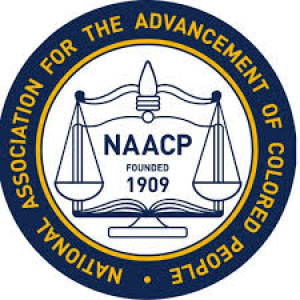
On this day in labor history, the year was 1909.
That was the day the National Association for the Advancement of Colored People was founded.
During the early years of the 20th century, the NAACP developed legal strategies to challenge anti-Black violence and segregation.
W.E.B. DuBois, Ida B. Wells, Archibald Grimke and Florence Kelley were just a few of the white and black intellectuals and activists who founded the organization.
They sensed the urgency for a civil rights organization in the wake of the 1908 Race Riot in Springfield, IL.
They hoped to combat the rapid growth of lynchings and Jim Crow statutes.
Membership ballooned to almost 90,000 in less than 10 years, with more than 50 branches nationwide.
These leaders opposed the gradualism of Booker T. Washington and fought to convince whites of the need for racial equality.
The NAACP investigated lynchings and targeted disfranchisement and segregation through a series of lawsuits.
They established a Legal Defense Fund that organized support for the Scottsboro Boys and similar cases.
They undertook the campaign to overturn the ‘separate but equal’ doctrine of Plessy v. Ferguson.
This resulted in the 1954 landmark decision, Brown v. Board of Education.
The NAACP played a central role in the Civil Rights movement with Rosa Parks as its secretary.
They helped to organize the Montgomery Bus Boycott, were centrally involved in the campaign to integrate schools in Little Rock, Arkansas, and mobilized for the 1963 March on Washington for Jobs and Freedom.
They also worked successfully towards the 1964 Civil Rights Act and the 1965 Voting Rights Act.
The NAACP continues its important advocacy work today with some 425,000 members.
More Episodes
 2023-05-03
2023-05-03
 2023-05-02
2023-05-02
 2023-05-01
2023-05-01
 2023-04-29
2023-04-29
 2023-04-28
2023-04-28
 2023-04-27
2023-04-27
 2023-04-27
2023-04-27
 2023-04-27
2023-04-27
 2023-04-22
2023-04-22
 2023-04-21
2023-04-21
 2023-04-20
2023-04-20
 2023-04-19
2023-04-19
 2023-04-18
2023-04-18
 2023-04-16
2023-04-16
Create your
podcast in
minutes
- Full-featured podcast site
- Unlimited storage and bandwidth
- Comprehensive podcast stats
- Distribute to Apple Podcasts, Spotify, and more
- Make money with your podcast
It is Free
- Privacy Policy
- Cookie Policy
- Terms of Use
- Consent Preferences
- Copyright © 2015-2024 Podbean.com




